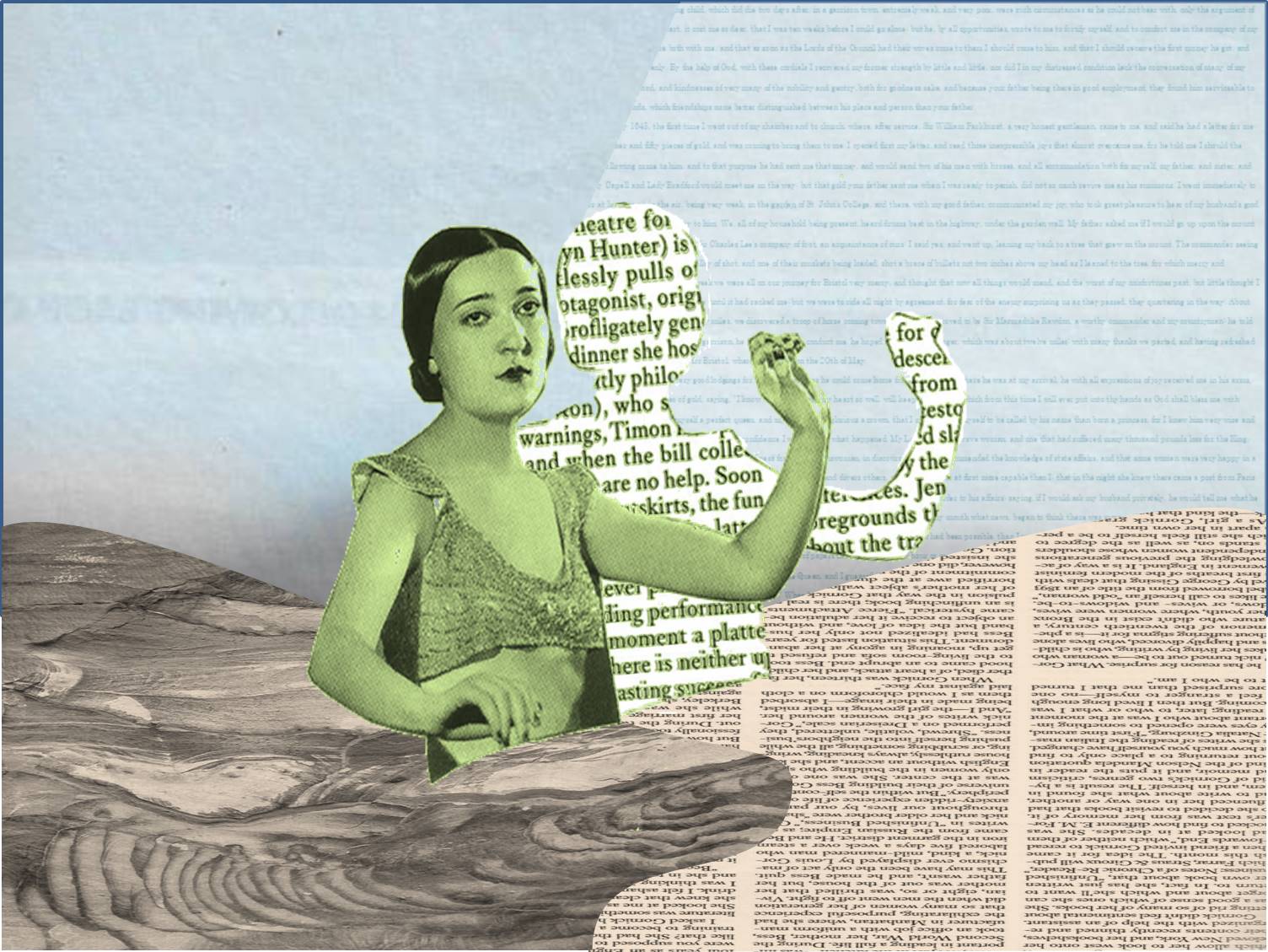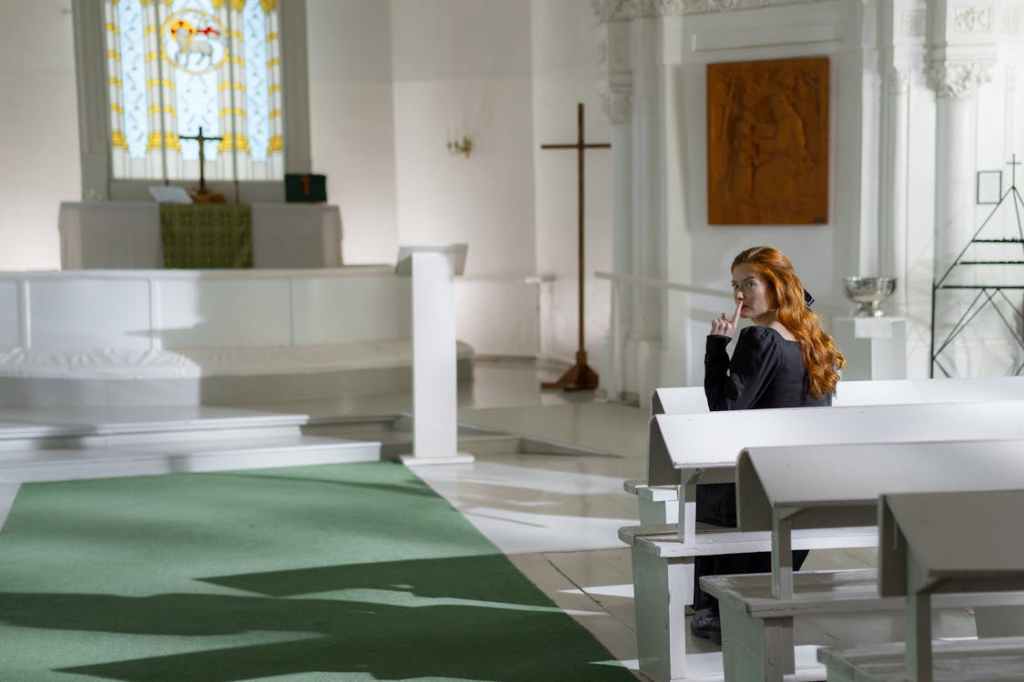Miss Bell tells me to stand up.
She’s the first-grade Sunday school teacher at Tuckahoe Presbyterian. She says she’s sending me to Mrs. Platt’s office. Mrs. Platt is the education director, the closest thing the church has to a school principal.
I am six years old, and I am in trouble for lying.
Every Sunday, Mother sends me to church. I have been warning my Sunday school classmates about patches of quicksand in the churchyard. If they accidentally wander into one, I have told them, they will be sucked in and pulled under. They will disappear and never be seen again.
“Watch out! There’s quicksand over there. Don’t step in it! And over there. Be careful!”
My classmates have been jumping around the playground like they’re playing hopscotch, trying to avoid the deathtraps that I promise them are there.
Miss Bell is a young woman who looks to me like the people I’ve seen on television that Mother calls hippies. She wears psychedelic-print mini-dresses and allows her long blonde hair to fall over her face, flipping it habitually away from her eyes with her purple-nailed fingers. I think she is beautiful.
I love to listen to her talk about love and kindness during our classes, and I sometimes wonder what it would be like if Miss Bell were my mother. I’m sad that she is sending me away from the class. I’m sure that she is disappointed in me.
When I reach her office, Mrs. Platt tells me to take the seat across from her at her desk. She appears to me as if she has been drying up and shrinking gradually, the way I have seen apples begin to contract and wrinkle on the window sill if Mother leaves them there too long. I hope she will not tell Mother that I am in trouble.
Mrs. Platt asks me where I learned about quicksand.
I learned about it from a television show that I was allowed to watch after Mother gave me an enema. She was giving them to me more and more frequently, almost daily. When she brought a bath towel from the linen closet into her bedroom and spread it on the lower corner of her bed, I knew it was time. She made me take off my panties and lie on the towel with my knees tucked into my chest.
“A good mother makes sure her child is regular,” she often said during this ritual.
After the enemas, Mother always told me to lie on the sofa in the family room for a while. She drew the draperies, making the room dark and cave-like. She turned on the television and let it play while I rested. That’s how I learned about quicksand.
On a show that was airing, one of the characters was sinking slowly into what looked like wet sand. He called for help as he sank to his waist, then to his shoulders, then further down until only the top of his head remained above the surface.
Soon after I saw that, I started to suspect—and then I knew, or thought I knew—that the sandy patches of earth under the trees in our front yard were quicksand. I started seeing quicksand everywhere—in the neighbors’ yards, in the areas under the ancient pines in the churchyard where no grass grows.
I knew I had to watch out. I had to be careful always, because here and there in the places where I walked and played, the ground beneath my feet threatened to melt into a vortex of sludge.
But I don’t explain all of that to Mrs. Platt. Instead, I am silent.
“Why are you making this up? Why do you want to scare the other children?”
Tears pool in my eyes as I stare at her. I am hoping she will let me return to my Sunday school class, where Miss Bell is by now probably giving the other children a snack of sugar cookies and red Kool-Aid.
“You have been telling lies,” she says, the wrinkles around her eyes growing deeper as she grimaces at me. “Lying is a sin. People who sin go to Hell. You don’t want to go to Hell, do you?”
I begin to cry. I know nothing about Hell. Miss Bell hasn’t taught us anything about Hell in our class. She has been teaching us about Ruth. She said that the Book of Ruth is a love story and that we should go home and ask our parents to read it to us from the Bible. She has never mentioned Hell, but I get the impression from Mrs. Platt that it is not a good place and that I should not want to end up there.
No, I don’t think I want to go to Hell, but I don’t want to be in Mrs. Platt’s office either.
“All right, dear. That’s enough.” She hands me a tissue and tells me that Reverend Fordham wants to talk to me further about lying. She instructs me to go to the church’s sanctuary, where I will find him preparing for the morning’s worship service.
The heavy white doors to the sanctuary are propped open. The chandeliers that hang over the pews have not yet been turned on, so I walk into a twilight. The candles burning at the altar give off an aroma like coconut. They illuminate the pulpit, where Reverend Fordham shuffles about. Tall and rotund, he appears like a tower over the lectern, his robe obscuring his bodily form, his face the only evidence that what stands there is a human being.
I walk to the altar, trying not to make any noise, hoping not to disturb God, wherever he may be in the sanctuary. Reverend Fordham looks up as I approach, his arms in the wing-like sleeves of his robe extending outward, beckoning me to him.
“Good morning, little one,” he says in a much quieter, more soothing voice than he uses when he speaks to the congregation. “You are the child with the vivid imagination, aren’t you?” He laughs softly and smiles, as if he can like someone who dreams up a world made deadly by quicksand.
Reverend Fordham motions for me to sit down on the front pew. I want to disappear, to melt away like the wax in the candles at the altar. I sit down and wait for him to tell me I’m going to Hell.
But he doesn’t. He sits down next to me and says, “Tell me, child. Is something bothering you? Scaring you? Is someone hurting you at your school? Is something bad happening at home?”
I might respond by telling him about the enemas. About the ritual that surrounds them—the bed, the towel, Mother taking the Fleet enema bottle out of its cardboard box and cooing, “Take off your panties and lie down right here for Momma.”
Or I might tell him about Mother’s visits to my bedroom at night, after my father is asleep. How she stands over me, reaching under my panties, touching me, whispering that she is checking to make sure I am healthy.
I might say that after I get home from school, sometimes Mother sits me down at the kitchen table and demands that I tell her things. Did the teacher ask me anything about my home? Did she ask anything about my mommy? Did I tell the teacher anything?
But I don’t tell Reverend Fordham these things. I don’t say anything.
Mother reminds me over and over not to talk about anything that happens at our house. Always be quiet, and don’t tell, she says. It’s none of their business. And besides, what they don’t know can’t hurt us.
I don’t answer Reverend Fordham. I am silent.
And not until all these years later, now that I’m an adult who has raised children of her own, do I stop to appreciate how perceptive he was. He saw the possibility that something was wrong in my life—something that was causing me to act out in an unusual way. To cry out an alarm about quicksand.
He recognized that it might be a cry for help.
Of course, Mrs. Platt tells Mother that I have been making up stories and scaring the other children in Sunday school.
“Shame on you! Shame! Shame!” Mother says to me in the car on the drive home from church. “How dare you embarrass me like this.”
We arrive home. As I get out of the car, I see our front yard, our neatly mowed lawn with its carefully trimmed hedges. Only I know the danger.
I imagine a first gentle pull on my feet. Then my ankles sinking into the muck. Wet sand, cold and heavy as it hugs my legs. By the time my chest is submerged, I won’t be able to get my breath. I will be pulled down into darkness.


Leave a comment